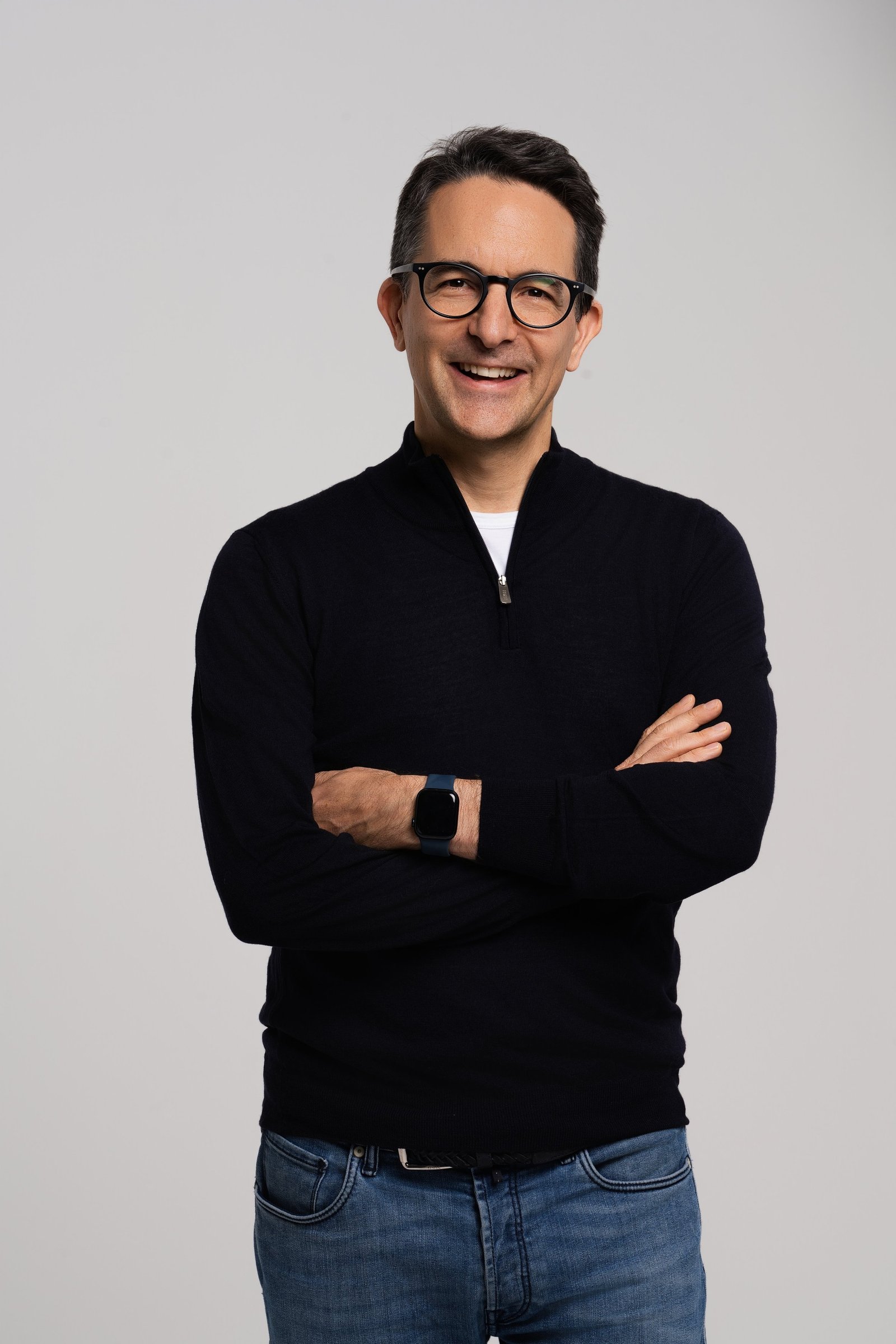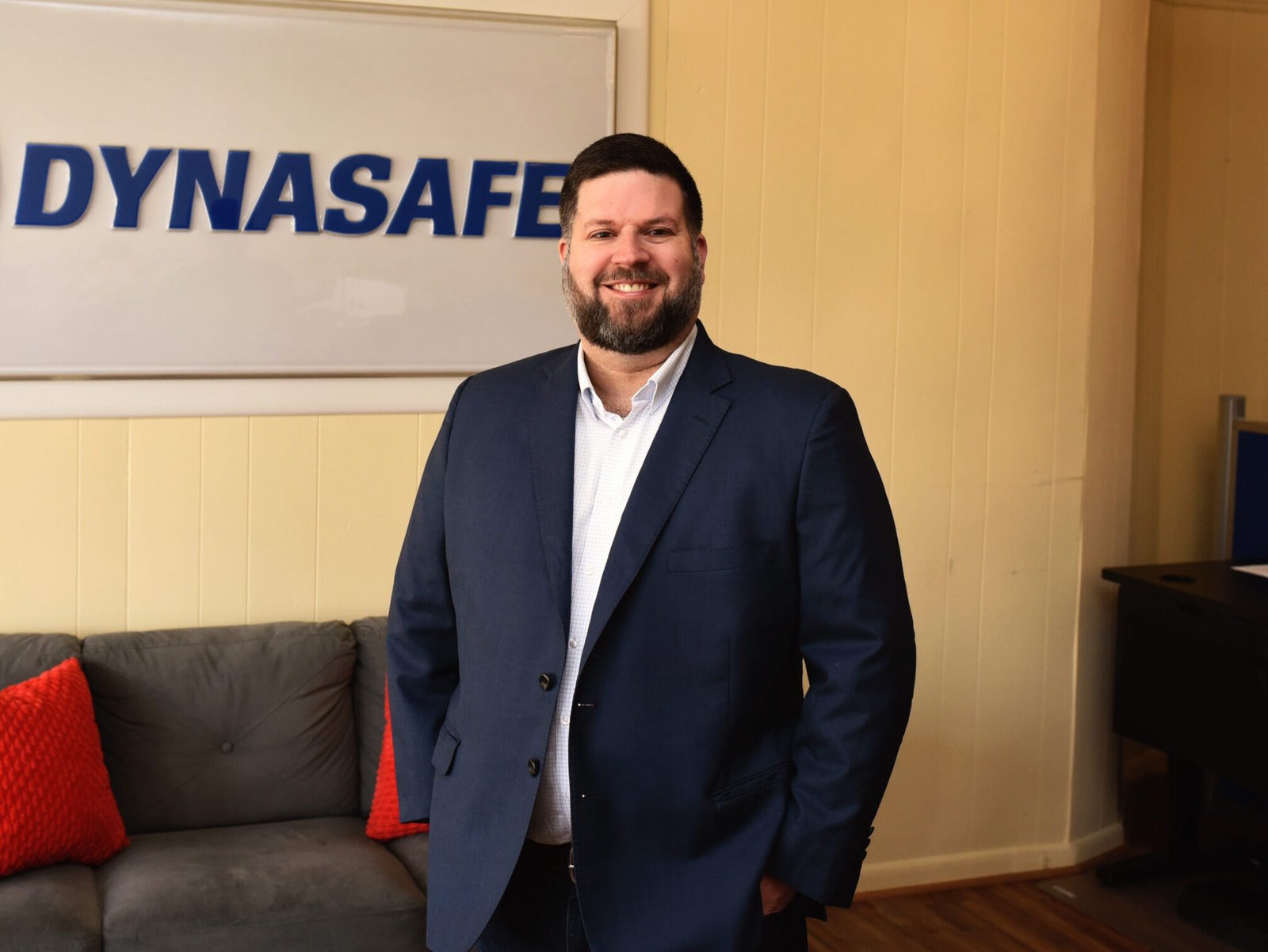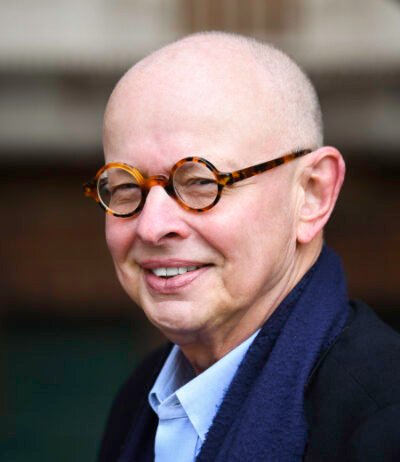I recently went one-on-one with Jonathan Wolf, co-founder and CEO at ZOE.
Adam: Thanks again for taking the time to share your advice. First things first, though, I am sure readers would love to learn more about you. How did you get here? What experiences, failures, setbacks, or challenges have been most instrumental to your growth?
Jonathan: I originally studied physics and I’ve worked in tech companies including running product for machine learning startup, Criteo, from start-up to $1B+ in revenue and going public. What I realized from that experience was that I didn’t want to build super-smart technology whose job was to get people to click slightly more often on ads. I wanted to help build something that could transform people’s lives for the better.
I met my ZOE co-founder Tim Spector, Professor of Genetic Epidemiology at King’s College London and world-renowned gut microbiome expert, and it was clear that we were aligned on a shared purpose: to lead a movement to transform the health of millions. Alongside my other co-founder George, our rule from that day was that we would always lead with science. ZOE was born that day.
We were challenged right out of the gate. Professor Spector said he wouldn’t do this unless we had the real data to provide personalized advice. So I had to raise money to fund the largest nutrition science study in the world for three years, with no product and no revenue. Then just as we were about to release our first product, the pandemic hit, and in five days, we rebuilt our technology and launched the ZOE COVID Study which enabled people all over the globe to log their symptoms to help the public understand COVID-19.
Within a day, the app had over 1M downloads and soon after, more than 4.5M users. This led the team to prove that anosmia, or loss of smell, was an early symptom of COVID-19. We published dozens of major peer-reviewed science papers, and with ZOE based in London, we helped the UK government understand outbreaks at the local and national levels. We feel strongly that community science tools like our app should have been relied on more to help inform people about symptoms.
Professor Spector was recognized for this work and awarded an OBE (Officer of the Order of British Empire) by the Queen.
Adam: How did you come up with your business idea and know it was worth pursuing?
Jonathan: The idea for ZOE started nearly 30 years ago with a groundbreaking study by our co-founder, Professor Tim Spector. He was studying 13,000 twins, looking at everything from genes to gut microbiomes and lifestyle, when he stumbled upon something extraordinary. Even identical twins, who share the exact same genes, could have wildly different health outcomes. One twin could be thriving, while the other struggled with chronic health issues. What was driving this difference? It came down to two things: the food they were eating, and the unique variations in their gut microbiomes.
This was a revelation. It completely shattered the myth that genes are our destiny. Through a series of major scientific studies, we have proved that our health is shaped more by what we eat, how we live, and the gut microbes inside us than by our DNA. This insight led to the creation of ZOE. Since then, we’ve been on a mission to improve the health of millions, by helping people make smarter food choices based on their unique biology.
The world has been misled by decades of misinformation from big food companies. At first, I thought this was accidental. Now, I increasingly feel that ultra-processed food is the tobacco of our time, and these big companies are intentionally perverting scientific research and government guidelines in order to protect their profits. The opportunity for us is clear: educate people, give them the tools to understand their bodies, and change how they think about nutrition. At ZOE, we’re not just challenging old ideas—we’re rewriting the rulebook entirely.
Adam: What advice do you have for others on how to come up with and test business ideas?Jonathan: The first step is to truly understand the problem you’re solving, not just the solution. At ZOE, we were driven by a fundamental question: Why do some people thrive on certain diets while others struggle, even when eating the same foods? That curiosity led us to groundbreaking science and a deep commitment to empowering people to transform their health. If you don’t fully grasp the problem, it’s impossible to build the right solution.
Have strong values. I believe a lot of the mess in the world comes from people feeling that the values that are important to them in their private life have no room at work. I utterly disagree. We only have one life. Work on something important that can help make the world a better place. Not only is this immensely rewarding, but when times are tough, knowing that you are doing something that matters, makes it 10 times easier to hang in there. I wish that big food companies had this same view about the products they sell to us.
Surround yourself with an exceptional team. Building something impactful isn’t a solo endeavor. Find people who are passionate about the mission, who complement your strengths, and who aren’t afraid to challenge you. A great team is essential, and they’ll help you pivot and grow faster than you could alone.
And finally, be prepared to disrupt. Don’t be afraid to challenge conventional wisdom. Bold decisions, paired with the courage to push boundaries, are often where the magic happens.
So, my advice? Be bold, have strong values, surround yourself with the best people, and never stop learning.
Adam: What are the key steps you have taken to grow your business?
Jonathan: Growing ZOE has been about combining science, innovation, and a relentless focus. There are several key steps we’ve taken to accelerate our growth:
1. Give a lot away for free. We have published over 60 scientific papers, and run the ZOE podcast which has millions of listeners each month. We give all of this away for free because our mission is to improve the health of millions. And because we know that the more people who learn about ZOE and the latest science of how you can transform your health with smarter food choices, the more people want to pay to become members, do their tests, and get personalized advice on what to eat.
2. Building a membership model. From day one, we set out to build a personalized nutrition program that gives people the tools and knowledge they need to take control of their health. Our membership program is the backbone of ZOE, offering personalized test results, actionable insights, and ongoing support. It’s more than just about selling products—it’s about creating a comprehensive system that helps people transform their health long-term.
3. Partnerships and ambassadors. Partnerships have been critical to expanding our reach and credibility. We’ve partnered with some incredible organizations, influencers, and ambassadors who share our vision for revolutionizing health through science. These collaborations have allowed us to tap into new communities, build trust, and increase awareness of the ZOE brand.
4. Constant innovation based on science that’s tested in clinical trials. This is a radical idea in wellness products, where in general nothing is tested and the science is often questionable. For us, science-backed product development has been central to our growth. We’ve launched products like Daily30+, a prebiotic whole food supplement designed to support gut health, tested with a randomized control trial before launch, and the MenoScale, a tool that helps women track changes during menopause. We know that innovation is key to staying ahead and providing more value to our members, so we’re constantly working on new products based on the rapidly increasing scientific understanding of how our gut microbes shape our health.
Ultimately, the combination of these pillars have allowed us to scale rapidly while staying true to our mission of transforming the health of millions across the world. We’re just getting started, and the best is yet to come.
Adam: What advice do you have for others on how to take their businesses to the next level?
Jonathan: This question takes me back to a pivotal moment at ZOE, when we made the bold decision to carry out our first randomized controlled trial (RCT)—the gold standard of scientific research—on whether ZOE Membership could improve health outcomes.
My cofounder Professor Spector and ZOE’s Chief Scientist, Professor Sarah Berry, both said that they couldn’t work at ZOE unless we did an RCT to prove that it worked. At the time, it felt like a huge risk. What if the results weren’t what we hoped for? What if they didn’t validate our approach? But we believed in our science, and we trusted the work we were doing. When the results came in, they were even better than we expected. People following the ZOE program showed significant improvements in blood fat, body weight, waist size, blood sugar control, and gut health. More importantly, they reported feeling dramatically better—improved mood, less hunger, better sleep, and more energy. These results were so compelling that they were published in Nature Medicine, one of the most respected scientific journals in the world.
The key takeaway from this experience is simple: Believe in what you’re doing. Taking bold risks, even if you’re not certain of the outcomes, is the only way to unlock real success. No risk, no reward. Of course, the risks should always be calculated and thoughtful.
So, when you’re considering the next big step for your business, don’t be afraid to bet on yourself, your team, and your vision. Trust the science, trust the process, and make sure you’re ready to embrace the unknown. That’s how you push boundaries and take your business to the next level.
Adam: What are your best sales and marketing tips?
Jonathan: When it comes to sales and marketing, I think it boils down to one thing: authenticity. If you’re not truly passionate about your product or service, people will see through it. This is especially true in the health and nutrition space, where people are bombarded with so much conflicting advice. At ZOE, we always start with the science. It’s the bedrock of everything we do. Our marketing is rooted in transparency and education, and we focus on helping people understand why what we’re offering works, and how it can make a real, tangible difference in their lives. This might sound naive, but our experience is that this approach is really successful.
Another key lesson I’ve learned is the importance of building a community, not just a customer or member base. We’re not just selling a product; we’re building a movement. We don’t just want people to buy into ZOE—we want them to be part of something bigger. It’s about creating a community where people can engage, share stories, and support each other to make a meaningful change to their lives.
Lastly, my advice is to be bold and take risks in your marketing. Don’t be afraid to challenge the status quo. Doing so not only reshapes how people perceive you, but it empowers you to make a meaningful impact. Here in the U.S., where the food landscape is dominated by powerful food corporations and weak consumer protections, challenging that status quo has never been more important for us at ZOE.
Adam: What is your best advice on building, leading, and managing teams?
Jonathan: Lead with transparency. This is something I’ve come to believe deeply over the years. At first, I wasn’t sure it would work, but now I’m convinced it’s one of the most powerful tools you have as a leader. When you share information openly and create a culture where transparency is the default, it fosters a much deeper sense of trust and accountability. It ensures everyone on the team feels aligned and understands not just what they are working on, but why they are working on it.
Another key piece of advice is empowerment. Give people the tools, resources, and autonomy they need to succeed. I’ve seen firsthand how much innovation and creativity flourish when people feel trusted to take ownership of their work. It’s about providing clear direction, setting ambitious goals, but then allowing your team the space to figure out the best path forward. If they fail, they learn; if they succeed, they grow—and both are essential to building a high-performing team. This does require you to allow people to make mistakes without being penalized for them.
Adam: In your experience, what are the defining qualities of an effective leader? How can leaders and aspiring leaders take their leadership skills to the next level?
Jonathan: Beyond transparency, I would say vision. Your team doesn’t want you to tell them exactly what to do. They want you to have a clear vision of where you are going, and an ability to articulate the key requirements and priorities. That allows them to understand, in their own roles, exactly what they need to do to make that vision a reality.
I also believe constant curiosity is key. As a leader, you can’t stop learning. I host the ZOE Science and Nutrition podcast, where I interview top scientists about their research and how it can be turned into actionable advice. It constantly broadens my understanding and sparks new ideas. The best leaders stay open to learning, seek out new perspectives, and surround themselves with people who challenge them to think differently.
To take leadership to the next level, it’s crucial to seek mentorship and feedback. Great leaders admit when they don’t have all the answers and are willing to learn from others. You don’t have to have all the solutions; it’s about empowering your team and tapping into their expertise. I have a great coach which I strongly recommend.
Resilience is also vital. Leadership isn’t just about making decisions—it’s about how you respond to challenges. If you stay calm and positive during tough times, your team will follow suit. This is easy to say, but can be hard to do!
Lastly, empathy is key. Understanding your team’s needs and motivations builds trust and helps you lead with authenticity. When you truly connect with your team, you inspire them to do their best work.
Adam: What are your three best tips applicable to entrepreneurs, executives, and civic leaders?
Jonathan: 1. Seek diverse perspectives: You never know where the next big idea will come from, and more diverse input leads to more creative and innovative solutions. This isn’t just about having different people at the table—it’s about actively seeking out perspectives that challenge your thinking and push the boundaries of what’s possible. The best ideas often come from unexpected places, and by embracing diversity, you unlock the potential for breakthroughs.
2. Measure success by output, not input: This is especially important in today’s world of flexible work and remote teams. As leaders, we need to focus on what people are achieving, not just how many hours they’re working or when they’re logged in. Trust your team to do their best work without micromanaging the details. When people feel trusted and empowered to manage their own time, they’re more likely to deliver high-quality results.
3. Understand your customers’ real problems: At the core of every great business or initiative is a deep understanding of your customers’ pain points. Don’t just guess what they need—go out and listen. Speak to them directly, understand their frustrations, and identify what’s really driving their decisions. Once you truly understand the problem, you can work backwards to build solutions that meet their needs in a meaningful way.
Adam: What are your best tips on the topic of health and wellness?
Jonathan: At ZOE, we believe the foundation of good health starts with the gut. One of the most powerful things you can do for your health is to eat a diverse range of plants. The latest science says you should be aiming for at least 30 different plants per week. The more variety you include, the more you support the health of your gut microbes, which in turn can improve everything from digestion and mood to sleep and energy levels.
Personalized nutrition is also key. Everyone’s body is different, so what works for one person might not work for another. That’s why understanding how your body responds to food is so important. It’s not about following a one-size-fits-all diet but finding what works best for you.
Lastly, as much as wellness trends can be tempting, we need to be cautious. For example, bovine colostrum has become quite popular, but there’s little scientific evidence to support the idea that adults in the Western world need to be taking it. Like many wellness fads, it often lacks the research to show real, long-term benefits.
Adam: What is the single best piece of advice you have ever received?
Jonathan: Your kids grow up really fast. Make sure you spend time with them while they are young. You can’t say I’m working really hard to provide for my family now, and in the future, I will have provided enough security that I can spend more time with them. They want you when they are young. When they are older and you have time for them, they will be off with their friends and then out the door to their own lives. Make time for your family now.
I was given this advice many years ago, and it’s the best advice I’ve ever been given. It’s not always easy to balance being a start-up CEO and a father, but ultimately I believe being a father is more important.









